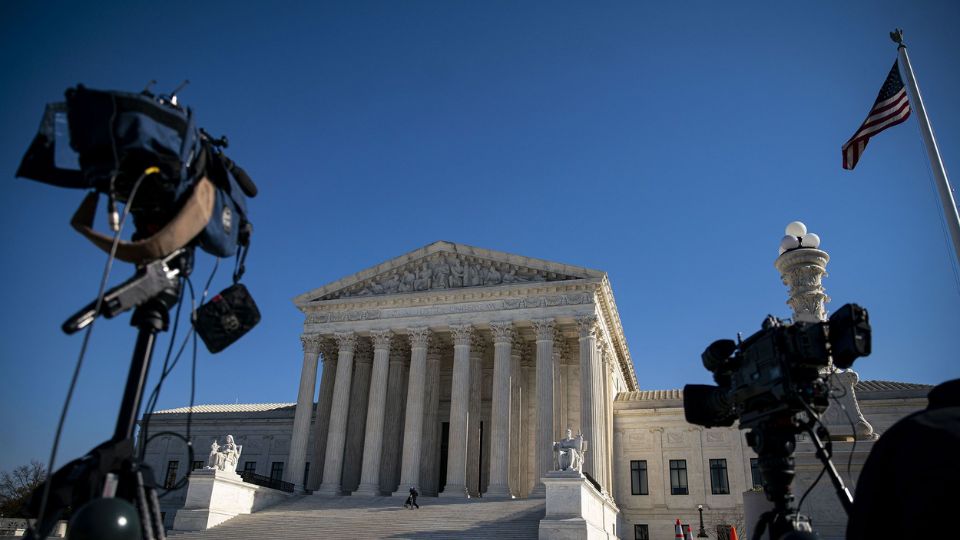A member of the Pennsylvania Legislature’s Government Oversight Committee is advocating for allowing cameras in the state’s courtrooms.
State Representative Jamie Flick, a Republican from Lycoming, is looking for other lawmakers to support a bill that may change Rule 1910 of the Pennsylvania Code. According to state law, judges are required to prevent broadcasting, televising, recording, or taking photographs in the courtroom and nearby areas while court is in session or during breaks.
Flick mentioned that his own personal experience, along with the well-known “Cash for Kids” scandal in Luzerne County in the early 2000s, inspired him to consider proposing this bill.
“It took five years to discover,” Flick said about the “Cash for Kids” case. This case resulted in two Court of Common Pleas judges going to prison for receiving kickbacks. “If there were cameras in the courtroom, it would have been easier to prove the case and justice would have been served faster.” “There are cameras all over the place … so why aren’t there any in the court system?”
Flick Hopes to File the Bill
Flick says that a draft of the bill should be finished by June 1, before the 2024-25 budget. He mentioned that he already has commitments from a few colleagues to co-sponsor.
“I believe that both Democrats and Republicans will support this,” Flick said. “Pennsylvania consistently ranks as one of the most corrupt states in the nation.” We have imprisoned attorney generals, starting from the highest-ranking officials and working our way down.
Flick mentioned that he anticipates encountering opposition to his suggestion due to the expenses associated with purchasing and setting up cameras.
Also Read: Weather Disasters Pushing Insurance Companies to Raise Prices and Drop Customers
Most States Allow Cameras in the Courthouse
Pennsylvania is one of only five states where cameras are not allowed in courtrooms, according to the Radio Television Digital News Association. The other states are Delaware, Iowa, Louisiana, and Oklahoma. Cameras are not allowed in federal courtrooms, except in limited circumstances in the Second Circuit and Ninth Circuit.
Dan Shelley, who is the president and CEO of the Radio Television Digital News Association, said that his organization has been working to bring about changes across the country for many years. He mentioned that the constitutional right to a public trial was a major reason for their support.
“The judicial system in the United States has a credibility problem, especially after the George Floyd incident,” Shelley said. She pointed out that the ongoing trial of former President Donald Trump, regarding hush money, in New York is an example of high-profile court proceedings that are not televised.
“What I find very noticeable is that when you observe Russia today, every time an important person accused of a crime goes to court in Russia, there are television cameras present in the room.” In the United States, it is rare for that to happen and it is considered unusual. There is a problem with that situation.
Judicial Advocates Want Law to Change
Melissa Melewsky, who provides legal advice on media law for the Pennsylvania NewsMedia Association, believes that it is necessary for Pennsylvania to reconsider its ban on cameras in courtrooms. “She said that we are in the minority on this issue.” “And it’s a rule that has been around for a long time.”
According to Melewsky, Flick’s attempt to change the law is the first of its kind in recent history. She thinks that if courts are more transparent, people will trust the system more. “Some legislators and judges will definitely oppose it,” she said.
The CEO of Pennsylvanians for Modern Courts, Deborah Gross, agreed. She mentioned that she supports having cameras in courtrooms, but she has heard concerns about whether there will be sufficient safeguards.
“People are worried about their privacy and they’re also worried about witnesses feeling scared.” “There is also a question about the safety of judges,” Gross said.
Flick’s memo explained that his bill does not permit unrestricted use of cameras in courtrooms. It also mentioned that recording children and alleged victims of sexual assault would still be forbidden.



Leave a Reply